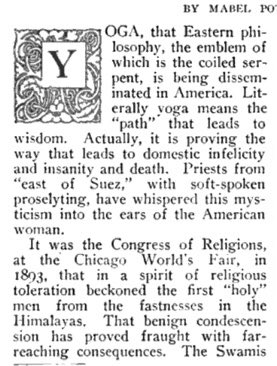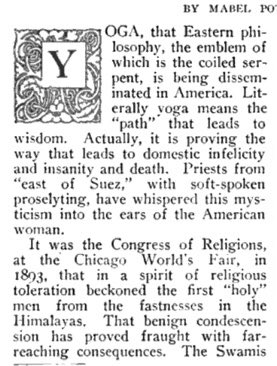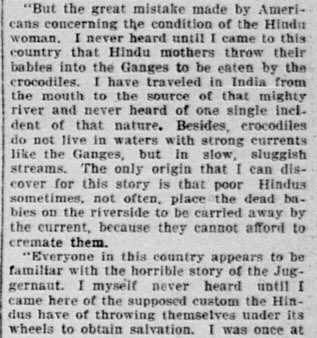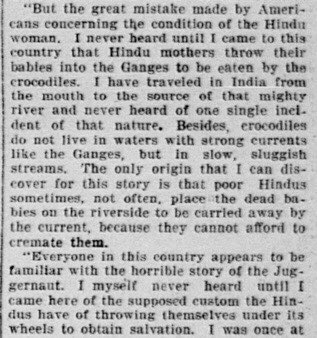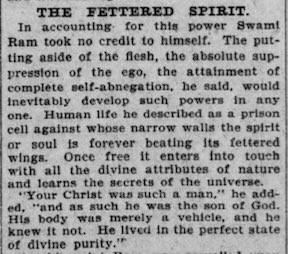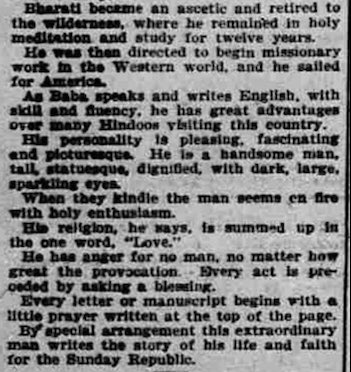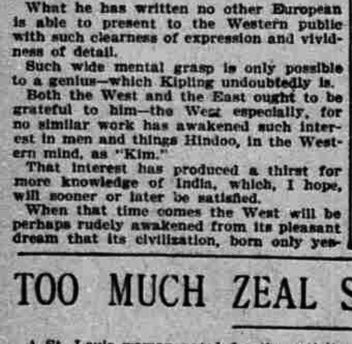
The Sun, 1900
Following Swami Abhedananda’s column (which was reprinted widely), The Sun received the following response from a reader:
“The assertions made by ‘a teacher from India’ specifically contradicted”
#HindooHistory



Following Swami Abhedananda’s column (which was reprinted widely), The Sun received the following response from a reader:
“The assertions made by ‘a teacher from India’ specifically contradicted”
#HindooHistory




“if this teacher had ever gone up from Calcutta to Meerut, some nine hundred miles, in a boat and made use of his eyes, I think he would have observed hundreds of these amphibious creatures... I could tell you cases myself where European men have lost their lives by swimming” 

“The teacher talks of the people of this country being familiar with the horrible story of the Juggernaut, which he also never heard of until he heard it here, though at the same time he says he saw one of those cars being drawn by men and women...” 
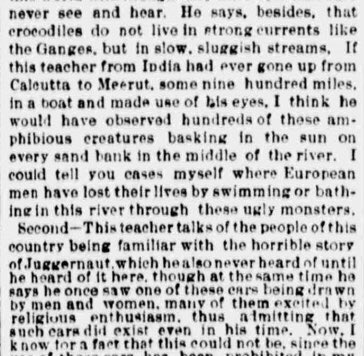
“The only Juggernaut that I have ever seen through the length and breadth of my travels in India was in the Niganes territory, a monstrous, cumbersome affair of mang tons in weight. It was rotting away on the side of a public road...” 

“Wherever the usage of this custom came from it had been prevalent throughout India until it was prohibited by English rulers and traded as murder, the same as the act of throwing innocent babes into the Ganges...” 

“This teacher says Hindoos are not cruel to their wives. If they are not cruel themselves, which they are often, they permit their mothers to be so...I could tel you facts that would make you shudder, and if American women only knew the degradation of a Hindoo woman’s life... 
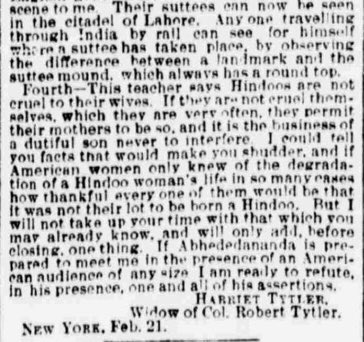
in so mang cases how thankful every one of them would be that it was not their lot to be born a Hindoo. But I will not take up your time with that which you may already know”
• • •
Missing some Tweet in this thread? You can try to
force a refresh


